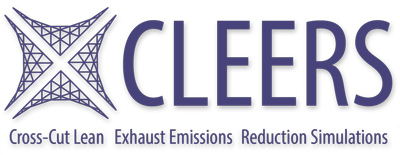Evaluation of Emissions from Light Duty Trucks with and without the Use of a Gasoline Particulate Filter
Fadi Araji, Environment and Climate Change Canada
Fadi Araji, Jonathan Stokes
Environment and Climate Change Canada
Abstract
The goal of this study was to investigate the emission impacts of replacing the OEM three way catalyst on light duty trucks by using different, commercially available, gasoline particulate filter (GPF) configurations. The three test vehicles were; a Port Fuel Injection (PFI) PFI_1 and two Gasoline Direct Injection (GDI) GDI_1 and GDI_2. The testing of these vehicles was conducted on a chassis dynamometer in a controlled test cell environment at two temperatures (25 °C and -7 °C) using the Federal Test Procedure (FTP-75) and the US06 test procedure. All three vehicles were tested in stock OEM configuration followed by testing PFI_1 and GDI_1 with a non-catalyzed GPF and GDI_2 with a catalyzed GPF. GDI_2 was also tested on-road using portable emissions measurement systems (PEMS) with and without the use of the catalyzed GPF. Results for the non-catalyzed GPF configuration on PFI_1 and GDI_1 showed a decrease in Total Particulate Matter (TPM) at both standard and cold temperatures, with the biggest decrease being 95.1% for GDI_1 during the US06 at 25 °C. An increase in NOx was also observed for both vehicles at both standard and cold temperature testing. On-road results for GDI_2 showed a 69% decrease in Particle Number (PN) with no significant difference in NOx while equipped with a catalyzed GPF.

